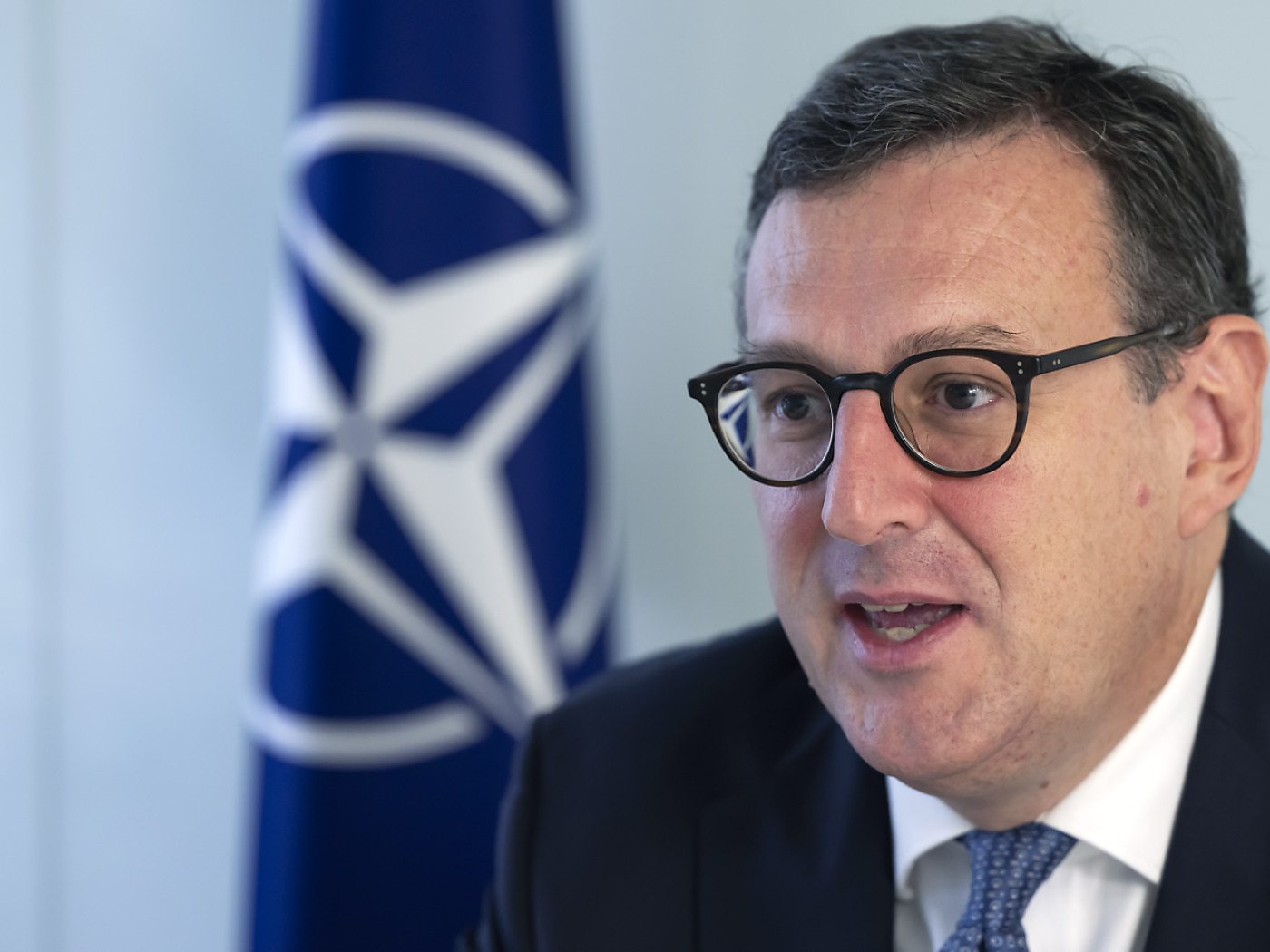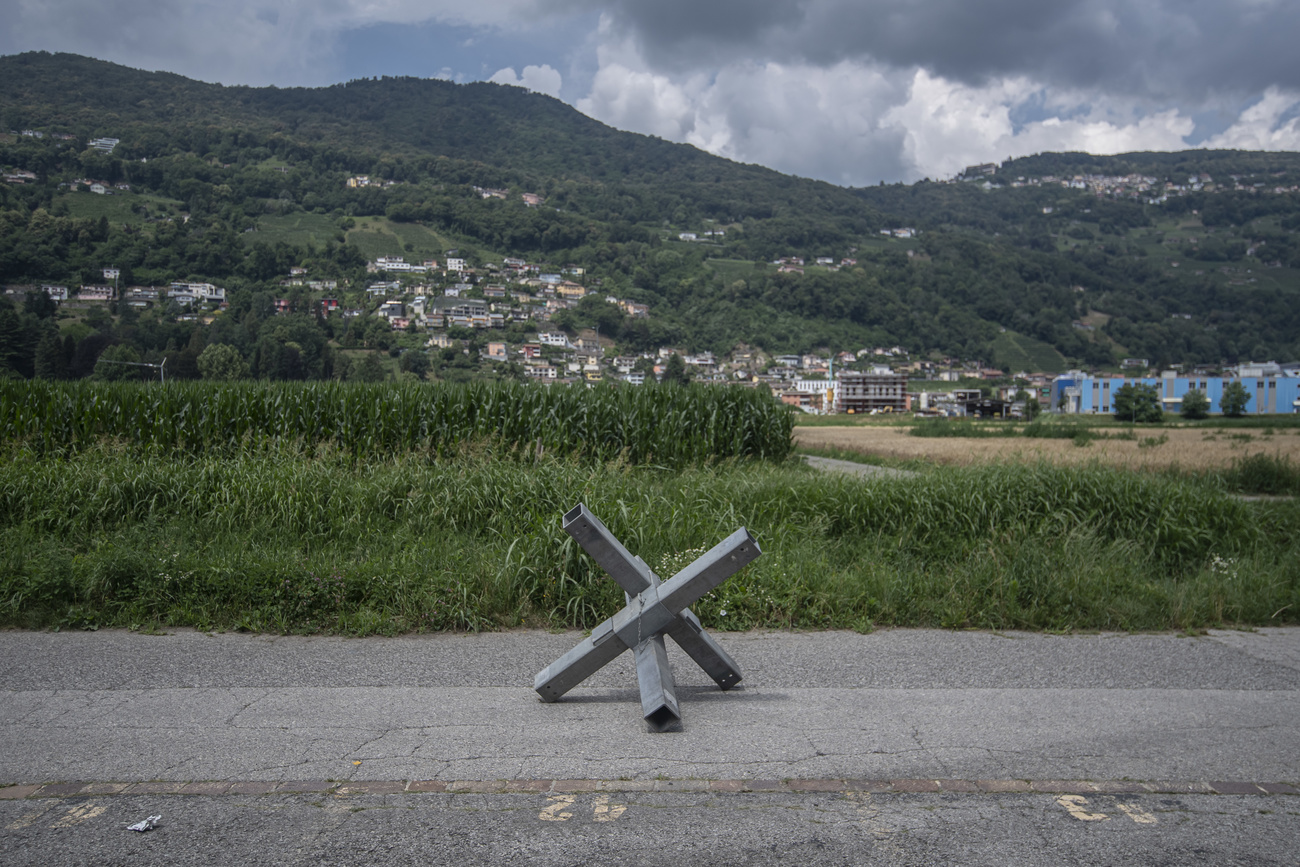
NATO Geneva office ‘will not violate Swiss neutrality’

The head of a new NATO office in Geneva says his position does not violate the host country's neutrality because he is not in charge of relations with Bern.
+ Get the most important news from Switzerland in your inbox
NATO already had liaison offices in other multilateral centres such as New York and Vienna. “The fact that we weren’t here was something of an anomaly”, said Spaniard Joaquin Molina, who believes that this arrival can make International Geneva “even more complete”.
+ Read why NATO has opened an office in Geneva
“Geneva is a world centre for diplomacy”, said Molina in an interview with Keystone-ATS, his first since taking office. “There is no other city in the world with this unifying power.
This is an analysis shared by many of the people he has spoken to over the past month. But the defence alliance has always worked with international organisations in Geneva, long before the office opened.
More broadly, “international security is increasingly important in the landscape we face”, said Molina. And NATO is committed to an international order based on the rule of law.
Humanitarian role
NATO also wants to show that it is not just a defensive military alliance. It is now positioning itself on a very broad approach to security, from cyber threats to migrants, climate change and the fight against terrorism.

More
Explainer: Russia pushes Europe’s neutral states closer to NATO
In particular, it sees an interest in participating in dialogue on issues such as humanitarian aid and disarmament, asserts this official, currently the only representative in this office in Geneva. “We are worried about the current situation”, he admits.
Next week, it will be taking part in the International Conference of the Red Cross and Red Crescent (ICRC), with a concrete commitment to be carried out by a Deputy Under-Secretary General.
The recent NATO summit in Washington gave pride of place to international humanitarian law (IHL). The fact that the Geneva Conventions and NATO were launched in the same year “is not really a coincidence”, according to the Spaniard. “The world responded to an approach that was there after the Second World War,” he says.

More
To cosy up to NATO, Switzerland may have to accept the bomb
IHL is part of NATO, which has tested it in several conflicts. The decision to intervene in the Balkans in the 1990s was precisely “in response to violations” of this law and of human rights, Molina believes. “Have all the problems been solved? Clearly not, but that’s not NATO’s fault. We were part of the solution”.
No dialogue with Moscow
On aid to Ukraine too, “we did what we had to do, even if some people think we should have done more”, says the Spaniard. “We continue to support Ukraine firmly”, he adds, without being able to comment on whether or not the country will soon join NATO.
+ Majority of Swiss closer NATO ties
In addition to its usual partners in Geneva, such as the three security centres financed by the Swiss Confederation and the UN, it wants to add others. It wants to relay “what it has to say”, without necessarily seeking to counter what players like Russia or China want to advance in the multilateral ecosystem. “We have a broader official dialogue with China”, but “we’re not currently talking to Russia”, explains Molina.
The decision to open an office had been validated by consensus in 2023 by the heads of state and government of the member countries. The Swiss authorities were then “a great help” as host state, explains Molina.

More
Inside Geneva: Neutrality, NATO, and the new world order
Swiss neutrality intact
Molina said his role is to work with international Geneva” with international organisations and NGOs.
“My office has nothing to do with bilateral affairs. This is something that is settled between Brussels [NATO headquarters] and Bern”, he adds. “The presence of the liaison office here in no way affects Swiss neutrality”, nor discussions between Switzerland and the NATO.
As proof of this, he cannot comment on the recent report by the Commission for the Future of Security Policy, commissioned by Swiss President Viola Amherd. The report recommended closer ties between Switzerland and NATO.
Translated from French by DeepL/mga
This news story has been written and carefully fact-checked by an external editorial team. At SWI swissinfo.ch we select the most relevant news for an international audience and use automatic translation tools such as DeepL to translate it into English. Providing you with automatically translated news gives us the time to write more in-depth articles.
If you want to know more about how we work, have a look here, if you want to learn more about how we use technology, click here, and if you have feedback on this news story please write to english@swissinfo.ch.

In compliance with the JTI standards
More: SWI swissinfo.ch certified by the Journalism Trust Initiative




























You can find an overview of ongoing debates with our journalists here . Please join us!
If you want to start a conversation about a topic raised in this article or want to report factual errors, email us at english@swissinfo.ch.